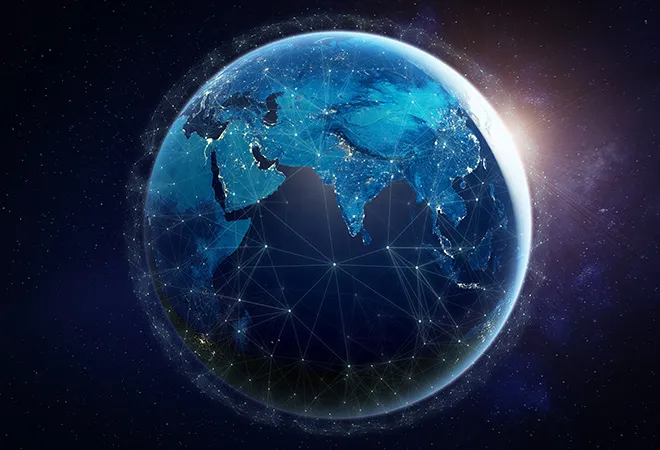
As the world transitions from the ‘new world order’ established by leading powers in the late 1940s, to a newer ‘contemporary world order’ defined by diffused and decentralised networks of power, questions about its nature, scale, and direction loom large in the international community. Multiple perspectives and explanations characterise the paradigm of the current world order, and the answers to these questions remain inconclusive.
The Us’ ‘America First’ policy and its withdrawal from several multilateral agreements, including the 2016 Paris Climate Agreement, the Trans-Pacific Partnership Agreement (TPPA), the North American Free Trade Agreement (NAFTA) and the Iran nuclear deal are often seen as points of departure from the established ‘new world order’. However, Cameron Munter, the CEO and President of The East West Institute and a former American diplomat, argued that these developments are not a break from the past but an indication of a directional intensification of the steady global change. Munter explained that the current global order is shaped by a diffused power structure, which makes it difficult to achieve the stability of the bipolar Cold-War period. Moreover, with the increase in the number of players and issues, the nature of the current world order has become heterodox, a concept that people are not familiar with.
Tectonic changes leading to an unfamiliar world order raise concerns about global security, especially as the rule-based arms control system, which the new world order sought to establish, seems to be gradually eroding, as seen in the Us’ recent plans to withdraw from the Intermediate-Range Nuclear Forces Treaty. Most states now seem to prioritise bilateral agreements over multilateral negotiations in the spheres of defence and security agreements. Evgeny Buzhinskiy, Chairman of the PIR Center, raised concerns about the shift towards a system of bilateral arms-control agreement. He argued that bilateral agreements pose problems of transparency and legality. According to Buzhinskiy, since nuclear-weapons states exist at global and regional levels, the approach to arms control must be multilateral.
Unlike the rest of the panellists, Chinese Ambassador Yang Yi made a case for the preservation of the established normative new world order, which, she argued, has helped developing countries prosper and caused the global economic pie to “become bigger and bigger.” According to Yi, good faith and goodwill are necessary to preserve the established order. Indrani Bagchi, the diplomatic editor of the Times of India, presented an alternative perspective of the established world order, arguing that it kept India out for the better part of its existence. India has achieved its strategic goals through certain acts of disruption of the established world order, such as the 1998 nuclear-weapons tests and the 2008 Indo–US nuclear deal. Thus, according to Bagchi, disruptions are not necessarily unfavourable.
In trying to offer a sense of the emerging world order, Anton Tsvetov, from the Russian International Affairs Council, remarked that the current form of globalisation entails smaller grouping of like-minded states, which is a “globalisation of the willing.” He attributed this form of regrouping to nations reacting to the complexities of the current word order, created by the diffusion and loss of power. Tsvetov suggested that the phenomenon of non-alignment might gain greater currency in the coming years.
The global world order is at a crucial juncture, and it is uncertain how it will unfold. Recent trends and analyses indicate a gradual shift from a non-exclusive, transnational rules-based global order to a bilateral form of international engagements. They also predict the emergence of multiple sensibilities and perspectives, whic h could potentially lead to chaos. The only way to conduce a harmonious world order is to let go of the Cold War psyche of cynicism and suspicion and as Ambassador Yi appealed, have a positive outlook on the developments.
The views expressed above belong to the author(s). ORF research and analyses now available on Telegram! Click here to access our curated content — blogs, longforms and interviews.




 PREV
PREV

